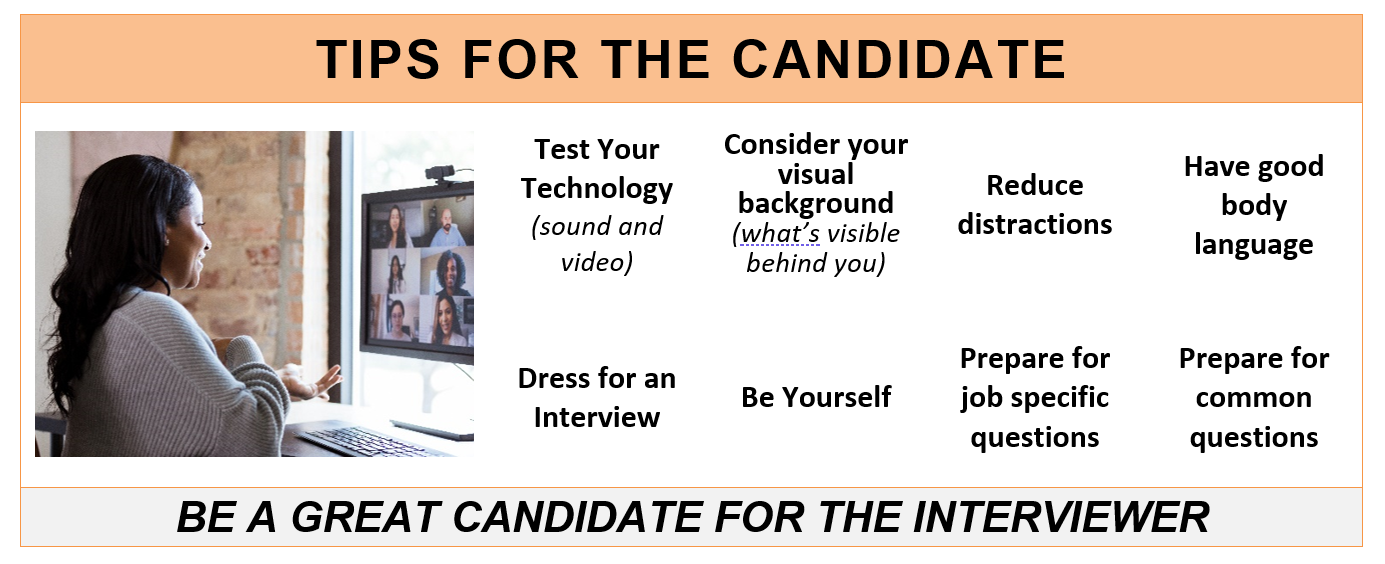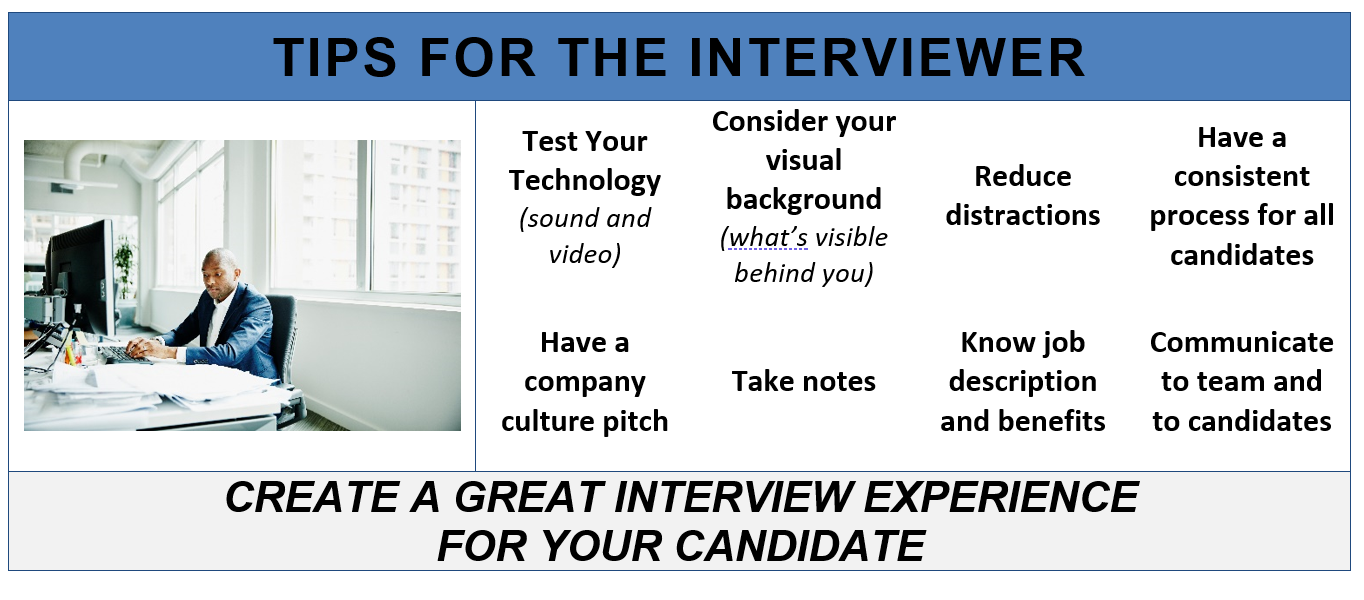Virtual or video interviews had already become a norm in the interviewing process back in 2015, when Korn Ferry polled 700 executives revealing 75% were using video platforms to conduct interviews. And with the Covid-19 safety protocols that began in 2020, companies that had never considered video now found it the only way to engage with both current employees and candidates. The benefits of using video technology for interviews include not only the savings in travel costs for candidates and companies, but the enhanced ability to connect with a more diverse, global candidate pool. Whether you are on an interview team, the hiring manager, the human resources recruiter, or the candidate, you need to know best practices for virtual interviews.
On this page:

Virtual interview defined
The job interview has core elements which apply to any setting: it is when both interviewer and candidate meet to discuss a job opening, the requirements, the compensation, and the expectations of new employment. What makes interviews “virtual” is that the people involved leverage technology for communications throughout the process.

Virtual interviews can be conducted with different technologies (laptop, smartphone, tablet, desktop computer with webcam and mic) and different software.
How a virtual interview different than in person
When you are using technology to conduct the interview, you need to consider things such as what will be visible from where you will be during the interview, your internet speed, and if there are family members or pets to accommodate. These considerations apply to both the interviewer(s) and the candidate as both could be participating in the interview process from a home setting.
Although you want to be professional for a first impression, likely there will be a higher level of understanding given the changes the Covid-19 pandemic has had on all lives.
How a virtual interview the same as in person
Preparation is critical. For the candidate, research the company, have a list of questions about the position, and be aware of your body language. You should be authentic, but you also need to convey your value as a professional. For the interviewer, you are representing your company and as such you need to express the company culture, be able to explain the job responsibilities and compensation, and have a consistent process for all candidates.
Virtual Interviews: Candidate
If the potential job is important to you, then you need to prepare. With virtual interviews, there are technology aspects that should be part of your preparation process. Use the tips below to better ensure a positive interview experience, even if it happens from your kitchen table and a smartphone with video.

The international job search site Indeed.com has several virtual interview resources for candidates including a video guide for virtual interviews and A Parent’s Guide to Working From Home With Kids.
Virtual Interviews: Interviewer
With virtual interviews, more companies are tapping into their own talent to enable diverse interview teams. You may have years of experience on the job, and find yourself on your first virtual interview for a new employee. For hiring managers, human resource recruiters, or even project managers vetting new team members, virtual interviewing is a critical skill.

In addition to the tips shared above, if you are the interviewer you should also make effort to help the candidate feel comfortable and at ease. Building rapport during an interview benefits all because making a connection in an admittedly pressured situation bodes well for having a good working relationship in the future.
Add virtual interview to your skillset
Building a virtual interview skill set adds to your professional value. Consider training options like Building Your Professional Brand and Networking and Social Capital to increase your potential to be included in an interview team and to enhance your next video interview as a candidate.


 New Horizons
New Horizons
 Project Management Academy
Project Management Academy
 Six Sigma Online
Six Sigma Online
 TCM Security
TCM Security
 TRACOM
TRACOM
 Velopi
Velopi
 Watermark Learning
Watermark Learning
 Login
Login




 New Horizons
New Horizons
 Project Management Academy
Project Management Academy
 Velopi
Velopi
 Six Sigma Online
Six Sigma Online
 TCM Security
TCM Security
 TRACOM
TRACOM
 Watermark Learning
Watermark Learning